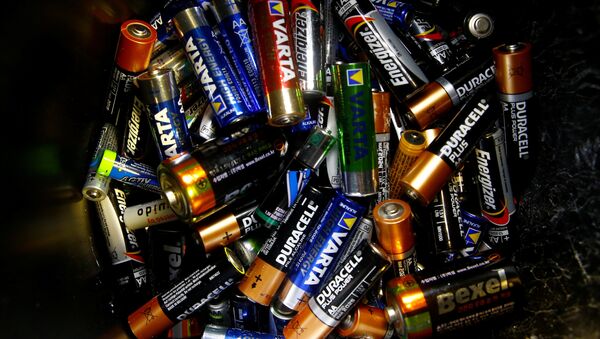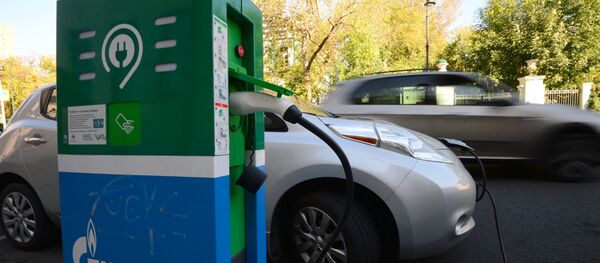New Delhi (Sputnik) — India's state-owned organizations have transferred the critical technology of lithium-ion batteries to the private industry in what is expected to drastically reduce the cost of such batteries by facilitating mass-scale production while cutting down on imports.
Lithium-ion batteries have applications in energy storage systems — from hearing aids to container sized batteries to power a cluster of villages, electric vehicles, portable electronic sectors, grid storage, telecommunication towers, medical devices, household and office power back (UPS), as well as powering robots in the processing industry.
READ MORE: Indian Cities to Have Electric Vehicle Charging Points at Every 3 KM
Besides these applications, the Raasi group of companies has announced the production of lithium-ion batteries for solar rooftops to reduce the production cost of solar energy. The step would provide a major push to the Indian government's scheme that aims to install 40,000 MW of rooftop solar power by the year 2022.
Raasi Group will set up a manufacturing facility in the Krishnagiri district of the southern state of Tamil Nadu.
"We want to bring down the cost of cell manufacturing below INR 15,000($222)/- per KW to replace the lead-acid battery…We also have plans to make the lithium-ion battery for solar rooftop with a lifespan of 25 years to make it affordable enough to drive the photovoltaic segment," C. Narasimhan, chairman-cum-managing director of Raasi Group, said.
The government has also put out a tender to procure 10,000 electric cars, which was won by the private firms Tata Motors Ltd. and Mahindra. The latter plans to make 60,000 electric vehicles annually, beginning in 2020. Hyundai Motor Co. Ltd. is expected to launch its electric vehicle in 2019, while Maruti Suzuki will enter the market by 2020.
READ MORE: Electric Cars Could be Popular in India With Proper Marketing, Awareness — Study
The Indian Space Research Organisation transferred technology of its indigenously developed lithium-ion battery for satellite and launch vehicle applications to the state-owned BHEL in March this year. The ISRO has been using 1.5Ah & 50Ah batteries for space applications. Its 5Ah & 100Ah batteries are ready for induction in space applications.
A lithium-ion battery developed by the ISRO was successfully demonstrated in a prototype two-wheeler at the Symposium on International Automotive technologies (SIAT 2017) in January 2017. The prototype uses a 48V, 50Ah lithium-ion battery, which can attain speeds of 40-50km per hour and can run up to 98km once charged for 2 hours.





